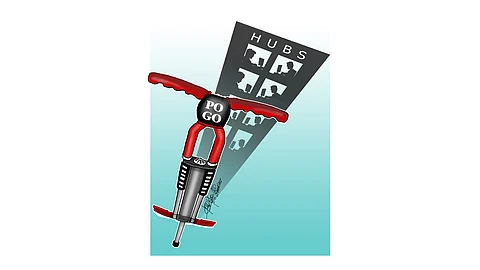
- NEWS
- the EDIT
- COMMENTARY
- BUSINESS
- LIFE
- SHOW
- ACTION
- GLOBAL GOALS
- SNAPS
- DYARYO TIRADA
- MORE

Philippine Offshore Gaming Operators (POGOs) have long been a controversial fixture in the country’s economic and criminal landscape. Initially seen as a lucrative industry that could bolster government revenue, the sector has increasingly become a hotbed of illicit activities, including human trafficking, money laundering and even violent crimes.
What was once a loosely connected network of operators has now evolved into highly organized crime hubs, alarming law enforcement agencies such as the Philippine Anti-Organized Crime Commission (PAOCC), which is now ramping up efforts to neutralize these threats.
When POGOs first emerged in the Philippines, they were largely decentralized, with different groups operating independently in various locations. While there were already concerns about illegal activities, their impact was relatively contained.
However, as these gaming firms grew in scale, they began consolidating power, forming larger hubs that centralized their operations. These hubs, often located in economic zones or within heavily guarded compounds, have become mini-fiefdoms where illegal activities are shielded from public scrutiny.
This transformation has drawn significant attention from both domestic and international law enforcement agencies. Reports have surfaced detailing how organized crime syndicates, many with ties to foreign criminal groups, have infiltrated the POGO sector. These syndicates are no longer merely skimming off the top — they are embedding themselves deep within the industry, using it as a front for human trafficking, cyber fraud, and other illicit enterprises.
The shift from scattered operations to consolidated hubs has enabled POGOs to operate with greater impunity. These hubs are heavily fortified, making it difficult for law enforcement to conduct raids or rescue victims trapped inside. In recent months, numerous reports have emerged about workers, many of whom were trafficked from other countries, being held against their will and subjected to inhumane working conditions.
Additionally, these hubs have become centers for financial crimes, particularly money laundering. With billions of pesos flowing through POGO accounts, these businesses provide an ideal mechanism for illicit financial transactions. Authorities have traced substantial sums of money being funneled through POGO networks, often making their way to offshore accounts linked to criminal syndicates.
In response to the growing threat posed by POGOs, the PAOCC has taken decisive steps to dismantle these hubs. Recent operations have led to the arrest of individuals linked to organized crime, the closure of several illegal POGO establishments and the rescue of trafficked workers. However, the challenge remains immense.
One significant hurdle is the legal ambiguity surrounding POGOs. While some operations are officially licensed, the overlap between legal and illegal activities makes enforcement difficult. Corruption within regulatory agencies further complicates efforts to crack down on illicit POGO operations, as some officials are suspected of protecting these businesses in exchange for bribes.
The government must adopt a multifaceted approach to address the POGO crisis. This includes stricter regulation, better coordination among law enforcement agencies, and increased international cooperation. Moreover, the legal framework governing POGOs needs to be reassessed, with a stronger emphasis on accountability and transparency.
Ultimately, the Philippines must decide whether the economic benefits of POGOs outweigh the security risks they pose. As these operations become more deeply entrenched in organized crime, the urgency for decisive action grows.
The battle against POGO-related criminality is not just about maintaining law and order — it is about safeguarding the country’s sovereignty and protecting the welfare of its people.
